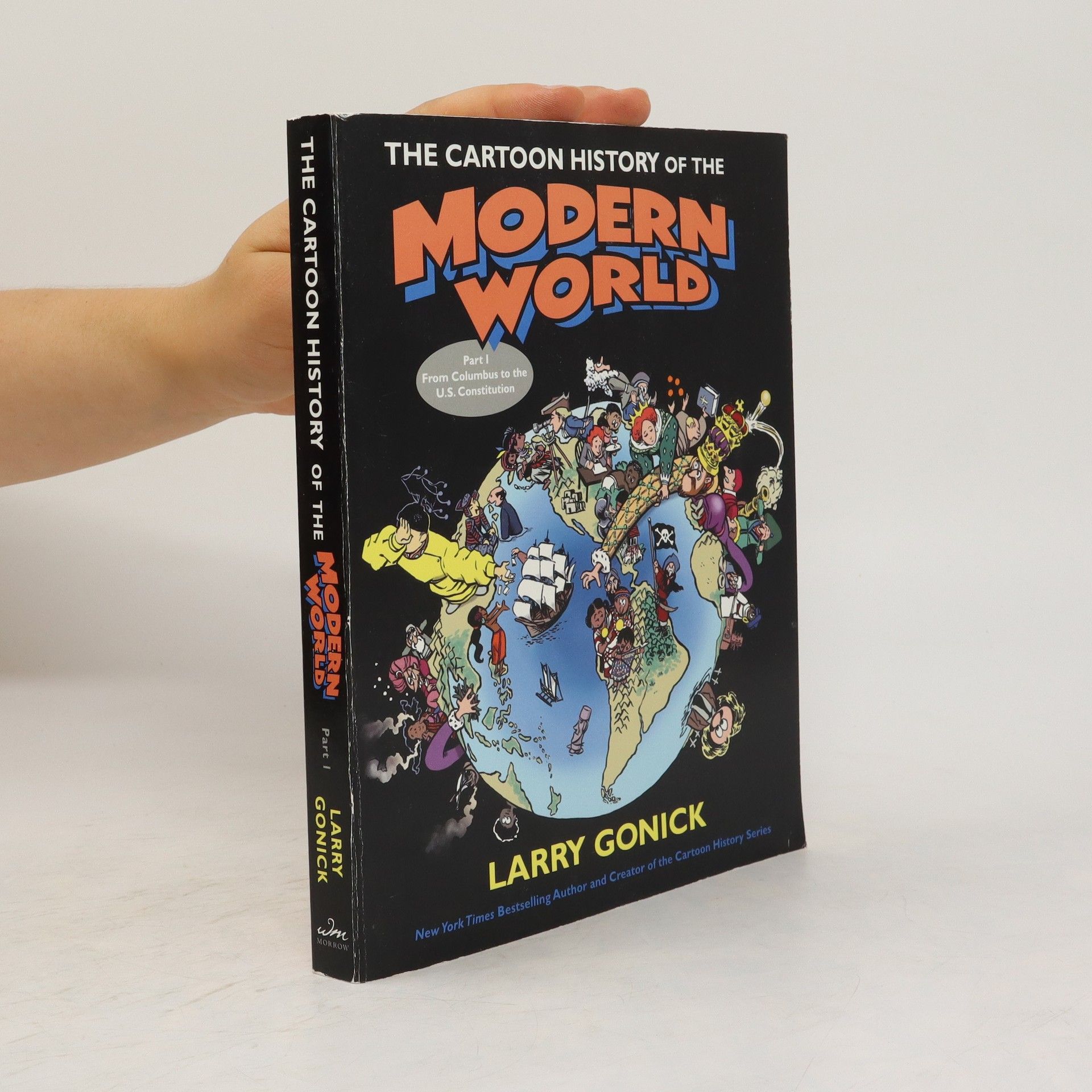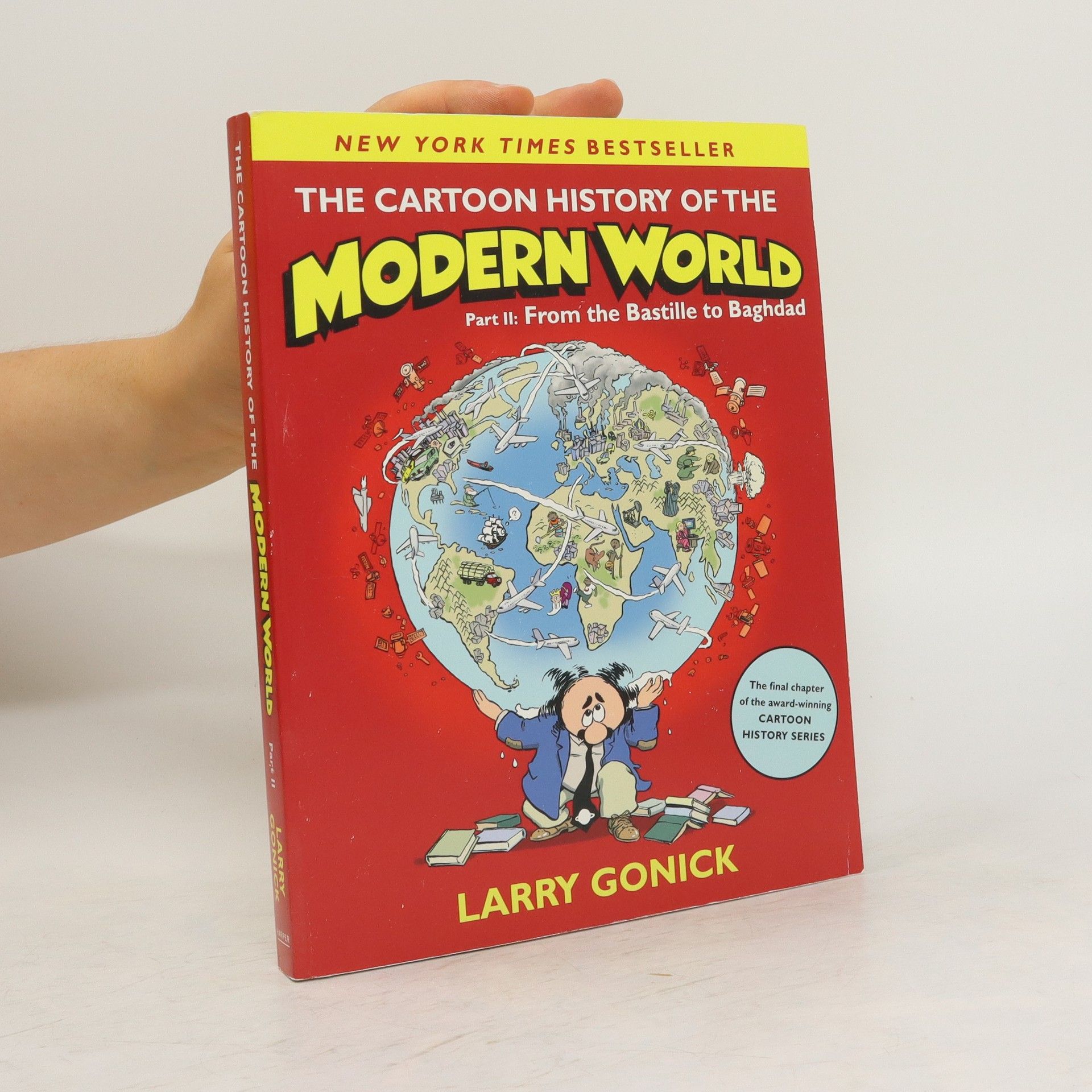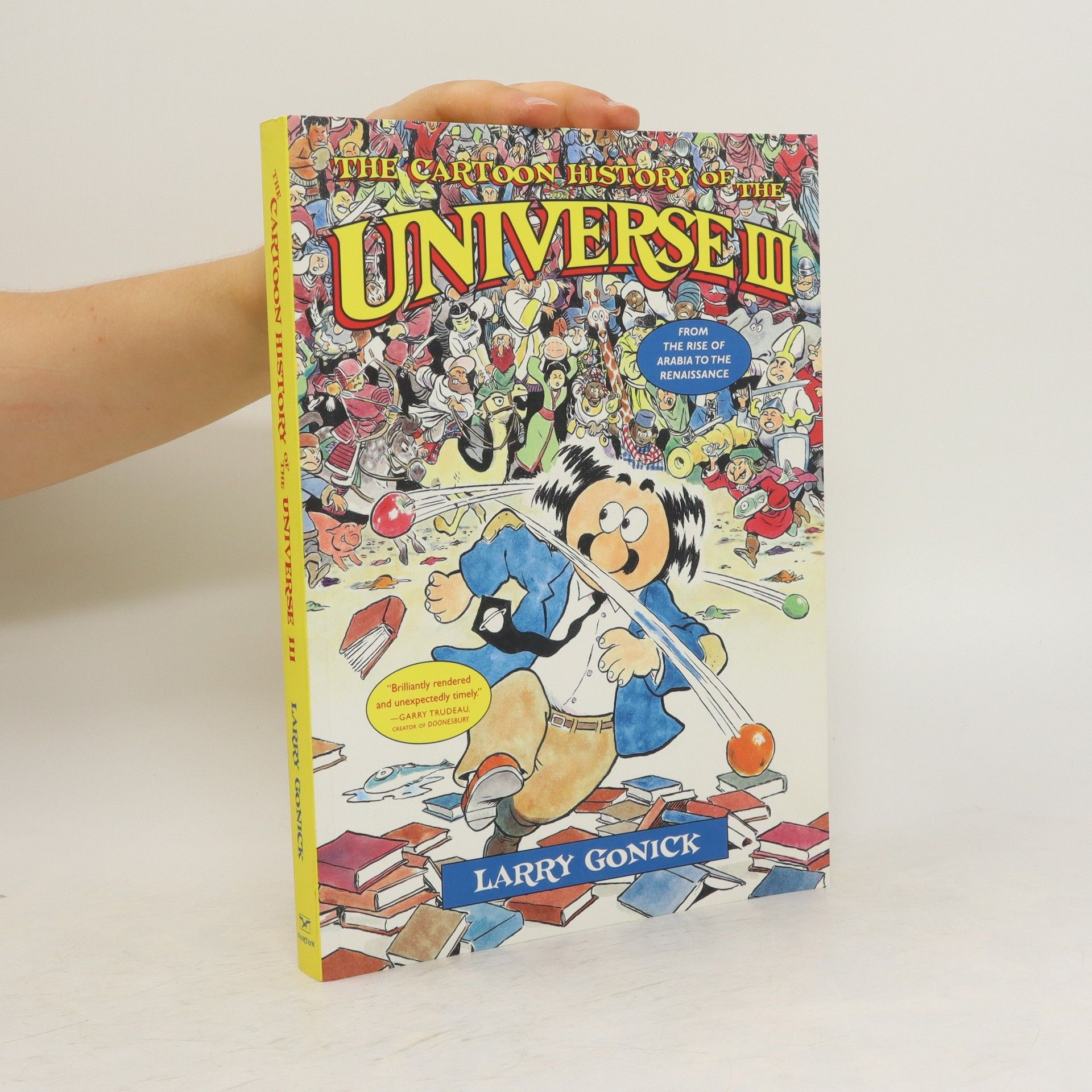The Cartoon History of the Universe III
- 300pages
- 11 heures de lecture
An irreverent survey in comics spanning world history from the birth of Islam to the Byzantine Empire to the Italian Renaissance.
Larry Gonick est un dessinateur réputé pour sa capacité à distiller des sujets complexes en récits graphiques accessibles et captivants. Il utilise magistralement le format de la bande dessinée pour explorer de vastes chronologies historiques et des concepts scientifiques complexes, faisant de l'apprentissage une expérience agréable. L'approche distinctive de Gonick en a fait une figure très respectée dans le domaine des bandes dessinées éducatives, célébré pour avoir percé les mystères de la science et de l'histoire à travers son art.







An irreverent survey in comics spanning world history from the birth of Islam to the Byzantine Empire to the Italian Renaissance.
Volumes 1-7: From the Big Bang to Alexander the Great
This illustrated guide presents world history in a way that is both entertaining and informative, making complex topics accessible and engaging. With a humorous approach, it aims to appeal to a wide audience, ensuring that readers find enjoyment while learning about significant historical events and figures.
This graphic work offers a bold critique of capitalism, utilizing sharp humor and striking visuals to convey its message. The bestselling cartoonist, known for "The Cartoon History Of The Universe," employs a unique blend of artistry and storytelling to explore the flaws and consequences of capitalist systems. The book promises to engage readers with its insightful commentary and entertaining approach, making complex economic concepts accessible and thought-provoking.
Here's a new installment of the phenomenal bestseller that Publishers Weekly selected as one of the twelve graphic books of all time. Spanning ages and continents from Ancient India to Rome and China in A.D. 600, Volume II is hip, funny, and full of info.B & W illustrations.
“From the Bastille to Baghdad,” The Cartoon History of the World Part 2 is the conclusion (for the moment) of Larry Gonick’s award-winning and bestselling annals of humankind presented in graphic novel form. Picking up after the American Revolution, where Part 1 left off, Part 2 opens with the Enlightenment and rolls across Napoleon, the fall of the Ottoman Empire, World War I and II, and all the way to our recent imbroglios in Iraq and Afghanistan. The Cartoon History of the Modern World Part 2 is a monumental, one might say “historic” achievement, at once edifying, irreverent, and wildly entertaining. Terry Jones of Monty Python said of the first volume of this series, “ Obviously one of the great books of all time.” And modern civilization’s most recent act is no less enthralling.
The Cartoon History of the Modern World is a wickedly funny take on modern history.
Part of Cartoon Guide series, this title offers college-level calculus course. It teaches the course essentials, functions, limits, derivatives, and integrals, with numerous examples and applications. It includes problem sets, designed to help readers cement the lessons learned in each section.
Have you ever asked yourself: Are spliced genes the same as mended Levis? Watson and Crick? Aren't they a team of British detectives? Plant sex? Can they do that? Is Genetic Mutation the name of one of those heavy metal bands? Asparagine? Which of the four food groups is that in? Then you need The Cartoon Guide to Genetics to explain the important concepts of classical and modern genetics-it's not only educational, it's funny too!
If you have ever suspected that "heavy water" is the title of a bootleg Pink Floyd album, believed that surface tension is an anxiety disorder, or imagined that a noble gas is the result of a heavy meal at Buckingham Palace, then you need The Cartoon Guide to Chemistry to set you on the road to chemical literacy. You don't need to be a scientist to grasp these and many other complex ideas, because The Cartoon Guide to Chemistry explains them the history and basics of chemistry, atomic theory, combustion, solubility, reaction stoichiometry, the mole, entropy, and much more—all explained in simple, clear, and yes, funny illustrations. Chemistry will never be the same!
Exploring the spectrum of human sexuality, this guide delves into topics ranging from initial attraction to the complexities of sexual health. It covers essential aspects such as sexual structures, gender roles, arousal, communication, and various relationship dynamics, all presented with humor and scientific accuracy. Larry Gonick's unique comic style makes complex subjects accessible and engaging, providing a frank and informative resource for readers seeking to understand the intricacies of sex without pretense.